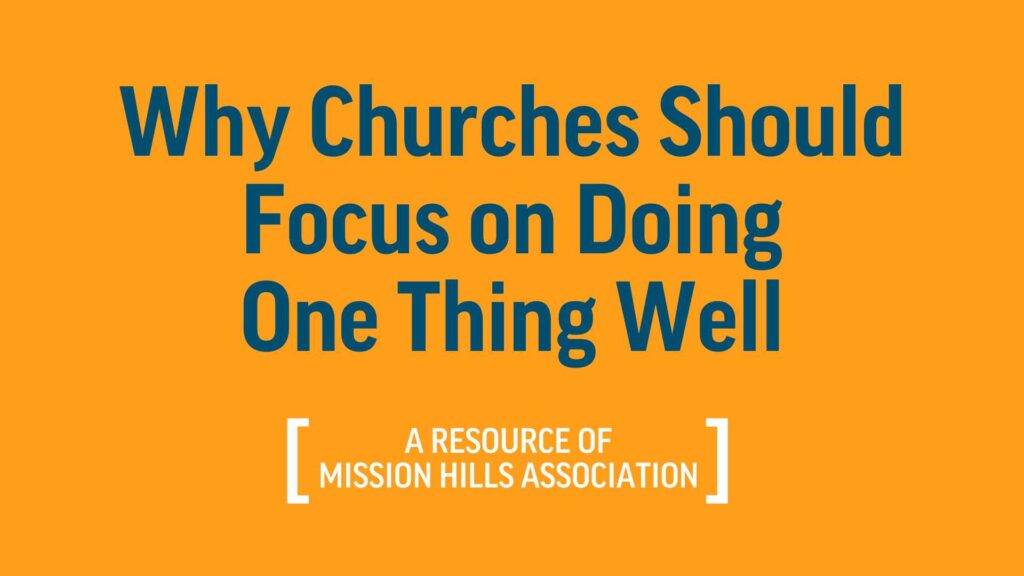
Burnout is real in ministry, and perhaps due to the transitory nature of student ministry (students come and go in the matter of just years!), there seems to be particularly high turnover in youth ministry.
The rising levels of burnout for church staff members and volunteers alike should spur us on to implement more focused strategies and systems so that our youth leaders are equipped to rest, recover, and avoid burnout before they even get close. This isn’t an issue we can deal with in hindsight – it’s time to get on the offensive and face it head on.
Our concern for preventing burnout comes from a place of:
a) Care for leaders
Having great church staff and volunteers isn’t a reason to work them to the bone. We have the responsibility to steward the gifts God has given our churches – not to overuse them.
We want to encourage leaders to work with a mindset of abundance in ministry – to know that their hard work isn’t ultimately where the fruit in student’s lives come from. And when leaders are equipped with that knowledge, they can experience the freedom to rest and know that in the long run, going slower will enable them to serve at a steadier pace.
b) Care for students
Students are directly affected by the adults who influence their lives, and we want students to experience continuity in the ministries they’re a part of. When leaders remain rested and hopeful, students benefit by experiencing the longevity of growing in a handful of discipleship relationships over time, versus getting acquainted with a new leader every semester.
That all may feel like a no brainer – of course we want youth leaders and students to be healthy! The real question is how. If there were easier solutions to burnout, it would already be a nonissue.
There isn’t a magic formula to prevent burnout for your staff, but we do have some tips for how your church can support staff in their ministry journeys:
1. Maintain adequate training and resources
It’s important to remember that your youth ministry volunteers aren’t in full-time ministry. Depending on how you structure your small groups or Sunday school classes, your leaders may need extra support and training on a given topic. Consider holding a relaxed time for training and education with your volunteers a few times a year where the group can reflect on growth they’ve seen, ask any questions they may have, and get the information they need to adequately share and lead whatever topic or Bible study is coming up next.
These training times don’t have to be strictly for education or resources – the point is to make sure your volunteers and staff know that they’re supported by the youth ministry director and the church at large, so that if they start to feel burnout down the road, they know they can be honest and seek out support.
2. Provide resources for emotional and spiritual support
Maintaining a healthy inner spiritual life and caring deeply for the spiritual lives of others can become a heavy emotional burden to bear. Our students are living in the same broken world we are, and just like we would point them to a counselor or trusted advisor in a time of crisis, we want to make sure our staff can do the same for themselves.
3. Help foster community
Check in with your staff and volunteers consistently about their lives outside of youth ministry to ensure they’re spending time with other supportive believers and that they are in healthy relationship with their spouse and children – in other words, make sure they have the tools to thrive in every area of life, not just while they’re at the church building.
4. Implement sabbath routines
This is maybe the biggest way that a church can impact their full time employees for the better: help them implement sabbath rest.
You can encourage your staff to choose an alternative from Sunday to practice their sabbath (if that’s when youth ministry happens) and you can also help them implement sabbath practices in the way you manage their time off and model it in your own life.
If burnout means to be fully exhausted and depleted in every way, then providing places of rest and retreat in the lives of our staff and volunteers is a great way to prevent burnout. It’s a lot harder to be exhausted when you’ve been given ample opportunity to rest!
These are just a handful of ideas to get you started as you think about how your church might approach burnout for your youth ministry teams, and for your staff and volunteers at large. Our people and resources are too precious to overwork them – we’re grateful to see the life that comes from a fully rested and clear-minded team of leaders – the leaders and the students are all better for it.




